Harris tells supporters 'never give up' and urges peaceful transfer of power
Harris: Election outcome 'not what we fought for'
- Published
Defeated Democratic candidate Kamala Harris has urged her supporters to accept Donald Trump's White House victory, while telling them to "never give up" fighting for their ideals.
At a concession speech in Washington DC, the US vice-president acknowledged "the outcome of this election is not what we wanted", but insisted there must be a peaceful transfer of power.
Harris, who cancelled a victory speech that had been planned at the same venue one night earlier, also told the crowd not to despair.
Trump has won enough key battleground states, including Pennsylvania, North Carolina and Wisconsin, to secure the presidency, with several states left to declare.
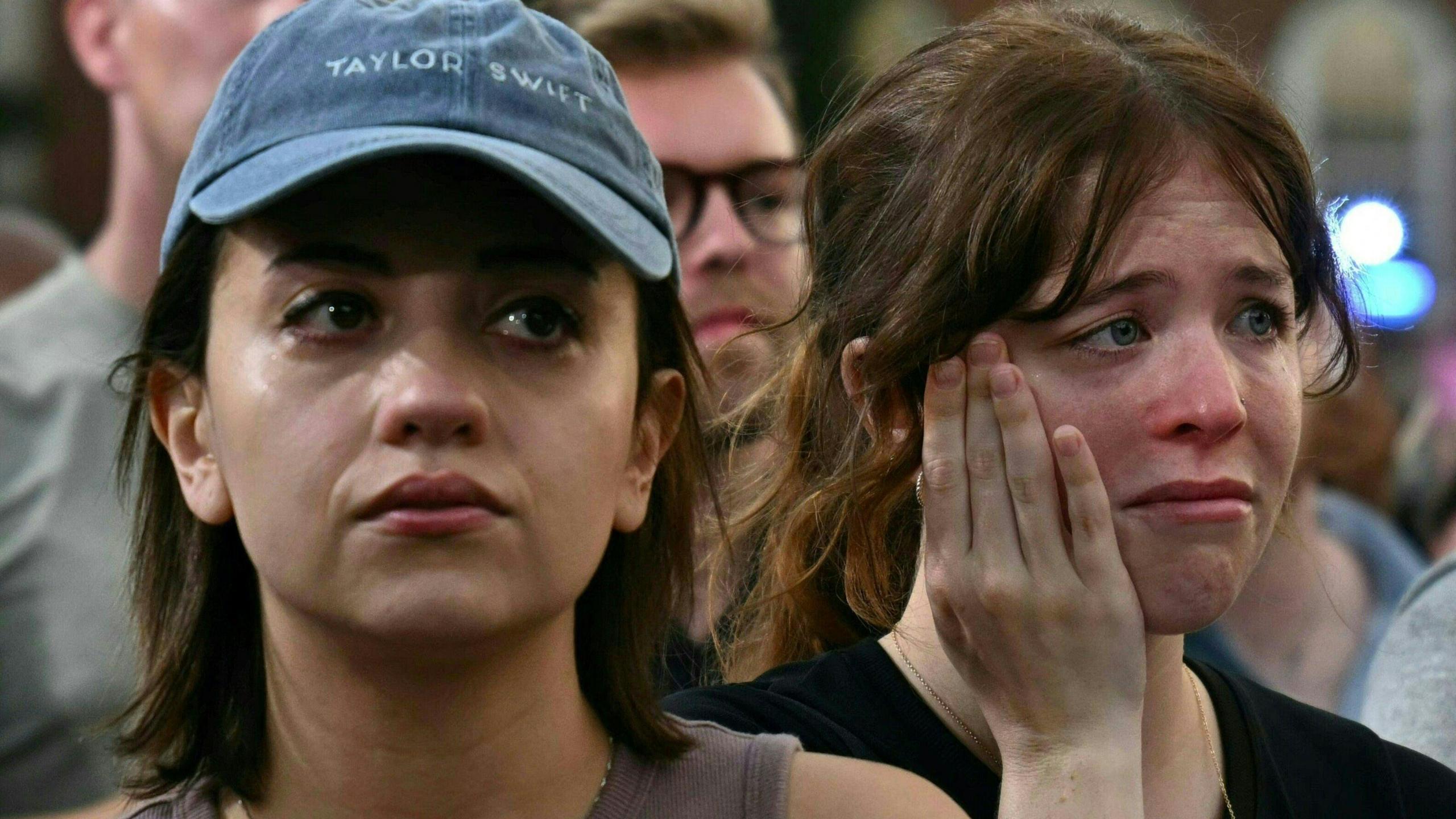
Harris said in Wednesday's remarks from her alma mater, Howard University: "Hear me when I say, the light of America's promise will always burn bright. As long as we never give up, and as long as we keep fighting."
She took the stage to her campaign song Freedom by Beyoncé before thanking her running mate, Minnesota Governor Tim Walz, her campaign staff, supporters, poll workers and election officials. Many in the audience wiped away tears during her remarks.
"I know folks are experiencing a range of emotions right now," she said with a chuckle. "I get it. But we must respect the results of this election."
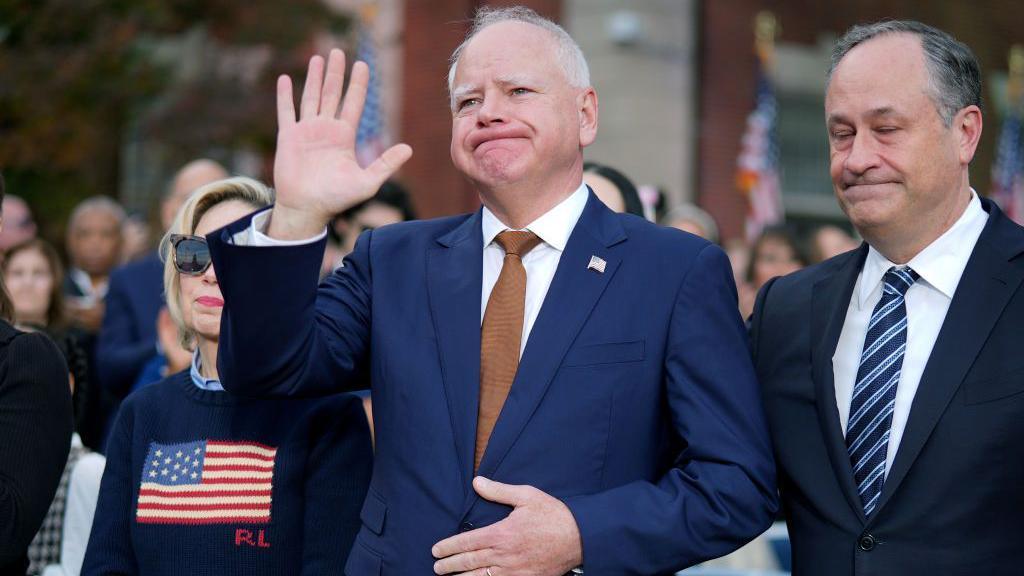
Tim Walz, accompanied by his wife and Harris's husband, was in the crowd
Her supporters responded with loud boos when she noted that she had had a phone call with President-elect Trump, and "I told him we will help him and his team with his transition. And we will engage in a peaceful transfer of power."
"While I concede this election, I do not concede the fight that fuelled this campaign," she added. Her speech referenced "fight" or "fighting" 19 times.
During the campaign the rivals often traded insults, with Harris calling Trump a "fascist" and a threat to American democracy.
Harris told her supporters on Wednesday: "I know many people feel like we are entering a dark time. But for the benefit of us all, I hope that is not the case."
The former California senator was running to become the first woman, black woman and South-Asian American to win the presidency.
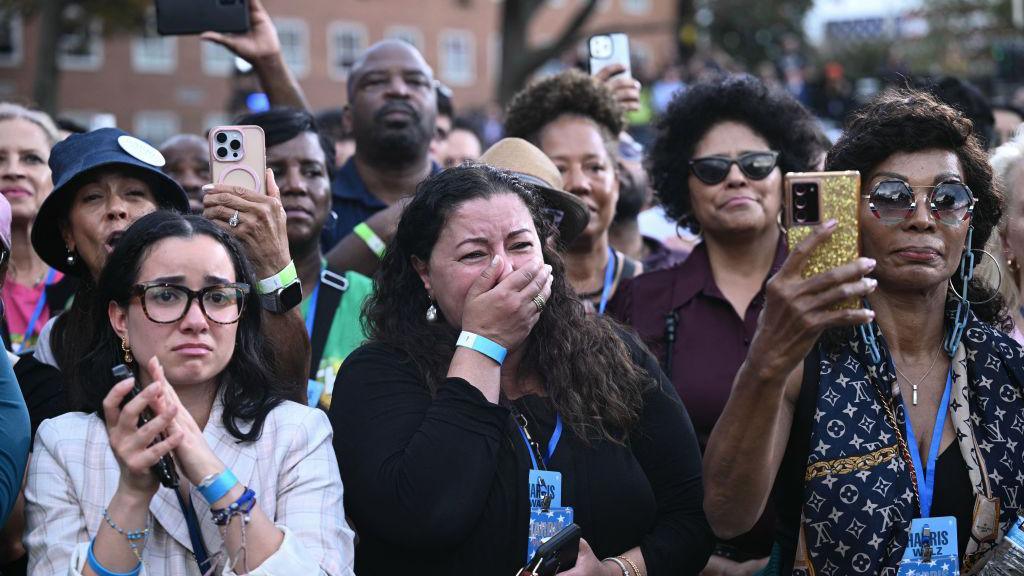
Harris supports frown and cry as they watch Harris speak
Harris and Trump spoke by phone on Wednesday, and discussed "the importance of a peaceful transfer of power and being a president for all Americans", a Harris aide told journalists.
A spokesman for Trump said that on the call, the president-elect "acknowledged Vice-President Harris on her strength, professionalism, and tenacity throughout the campaign, and both leaders agreed on the importance of unifying the country".
In a separate call with Biden, the president "congratulated the Vice-President on her historic campaign", according to a White House readout of the call.
Biden watched Harris's speech live at the White House, one of his aides said.
One Harris supporter, Charles Collins, flew in from San Francisco to be at Howard University on Wednesday.
"I'm moving through the process of grief," he told the BBC. "But Kamala asked us to heal, so we can get to work."
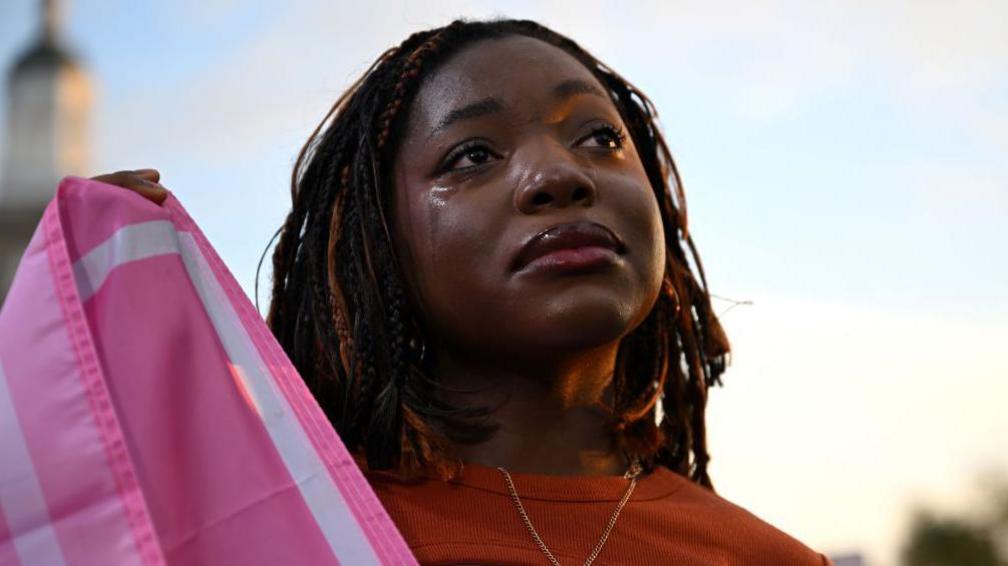

Harris's stepdaughter, Ella Emhoff, was seen crying
The crowd at Howard University was noticeably smaller than it was on Tuesday night, and the atmosphere was sombre. Many supporters wore black, instead of the bright pink colours of Harris’s sorority, Alpha Kappa Alpha.
“I feel pretty hopeless right now,” said Howard law student Najah Lorde. “I think a lot of us are lost right now."
A young woman who declined to give her name, saying she could not speak to media as an employee of the federal government, told the BBC: “I cannot grapple with the fact that people have put economics over my body, over my rights.
“I really am at a loss.”
US voters on one reason Trump won... and why Harris lost
Exit poll data suggests that the Democratic nominee may have under-performed with women. Some 54% of female voters cast their ballots for her, below the 57% of women Joe Biden won in 2020.
Black and Latino voters also appeared slightly less likely to support Harris than they were to back Biden four years ago, exit poll data suggested.
The campaign faced criticism at times for its failure to expand on a clear economic message, an issue which was extremely important to Americans who have faced several years of rising inflation.
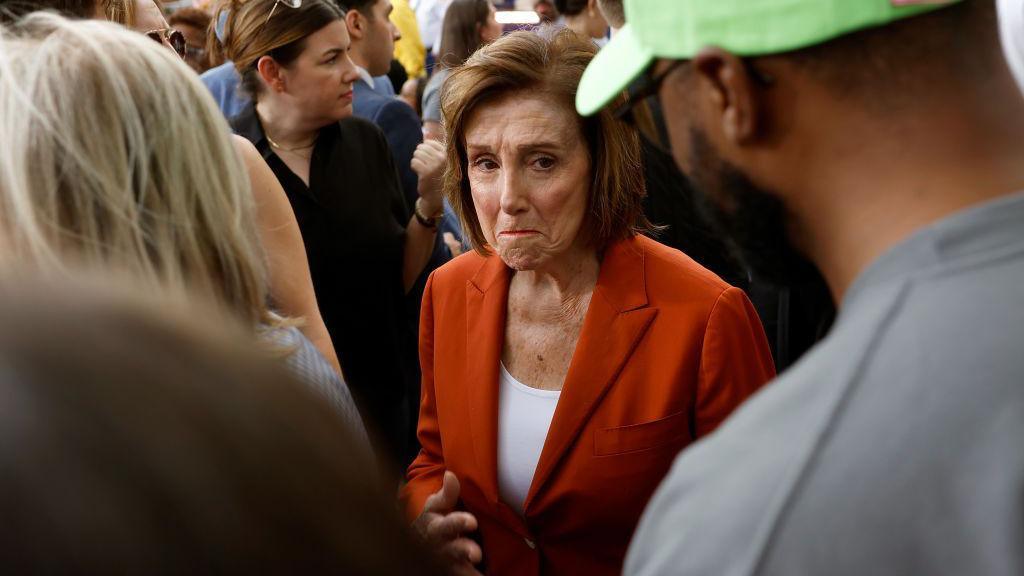
Top Democrat Nancy Pelosi seen in the audience at Howard



North America correspondent Anthony Zurcher makes sense of the race for the White House in his twice-weekly US Election Unspun newsletter. Readers in the UK can sign up here. Those outside the UK can sign up here.